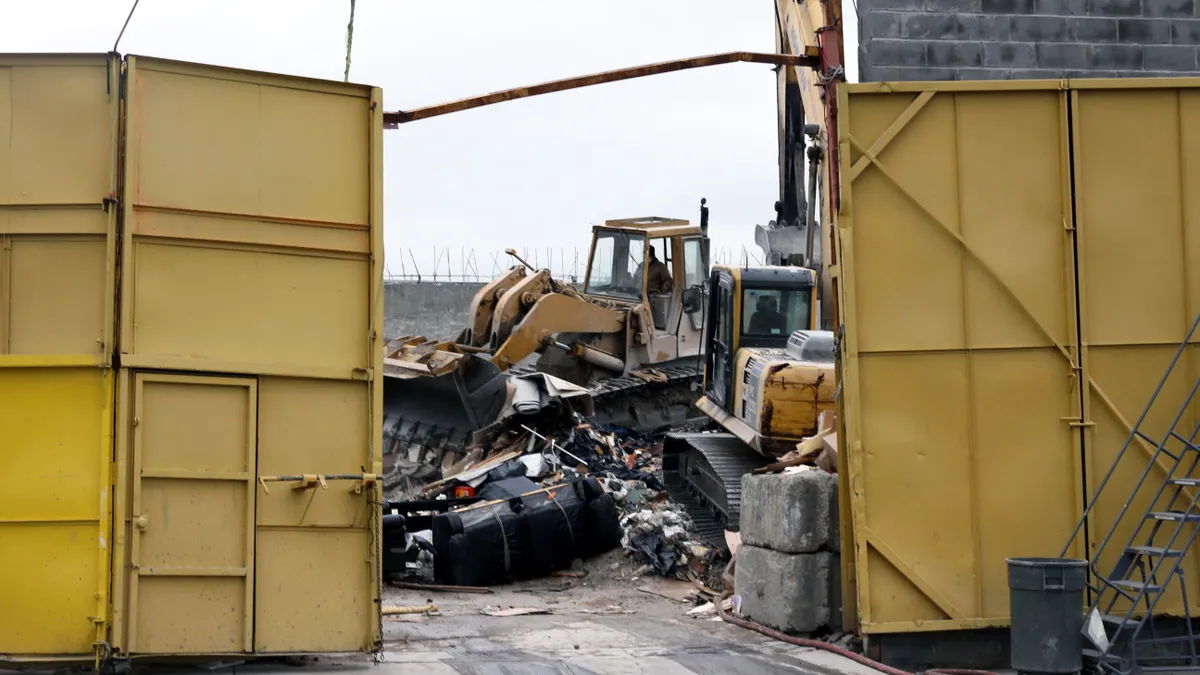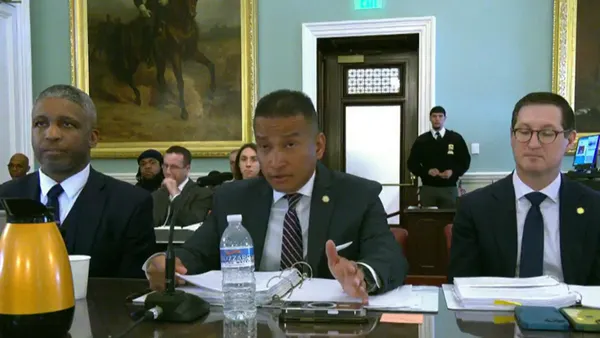Dive Brief:
- Intro. 495, a bill aimed at limiting the quantity and capacity of private transfer stations in New York, has been losing support among many of the council members whose constituents it's meant to help, as reported by Politico. This is due in-part to ongoing efforts by lobbyists.
- One lobbying group, MirRam — co-founded by longtime political operative Luis Miranda Jr., father of Lin-Manuel Miranda — has been paid $29,500 this year to lobby the council on behalf of two transfer stations. Laborers Local 108 continues to vocally oppose the bill, despite changes made in an effort to compromise earlier this fall.
- At the start of this year the bill had 26 sponsors — the minimum needed to pass — but that has since dropped to 19. The majority of the sponsors who withdrew are from the Bronx, which is home to a high concentration of transfer stations in its southern section.
Dive Insight:
This bill was originally introduced more than two years ago in an effort to bring "waste equity" to three areas in the Bronx, Brooklyn and Queens that host more private transfer stations than any other neighborhoods in the city. Council Member Antonio Reynoso from Brooklyn — chair of the council's sanitation committee — was one of its original co-sponsors and at one time had said he hoped to pass the bill by the end of this year. His opposition to new organic waste processing contracts that would have utilized some facilities in these areas has also been unsuccessful.
While this bill technically predates the beginning of serious discussion around a commercial waste zoning system, it is very much a part of the conversation. Transfer stations in the Bronx and Brooklyn have been the subject of recent reports from advocates supported by the Teamsters lately to put pressure on private haulers. If New York's potential zoning system follows the model recently approved by Los Angeles there could eventually be more restrictions on the capacity at these facilities, but implementation is still many years away.
The bill has been revised to say that no one community can process more than 10% of the city's waste — up from 5% in the previous version — but that may not be enough. Private haulers and Local 108 remain strongly opposed and the Department of Sanitation has expressed concerns in the past. The revised version of the bill also exempts rail and marine transfer stations, a key part of the city's export network, but the agency is still not endorsing the plan yet.
"The Department had concerns with the first version of the bill, which Commissioner Garcia testified to at the hearing in front of the City Council. The Department of Sanitation looks forward to working with the Council to reduce the burden of waste management infrastructure on historically overburdened communities," wrote NYC Department of Sanitation spokesperson Belinda Mager in an emailed statement.
Whether or not Reynoso will attempt to rally support for the bill next year before he stands for re-election in the fall remains unclear. His office could not be reached for comment. If the bill is successful it would be a big achievement for his first term, though if re-elected he will have a new dynamic with new colleagues and could try again in 2018.














